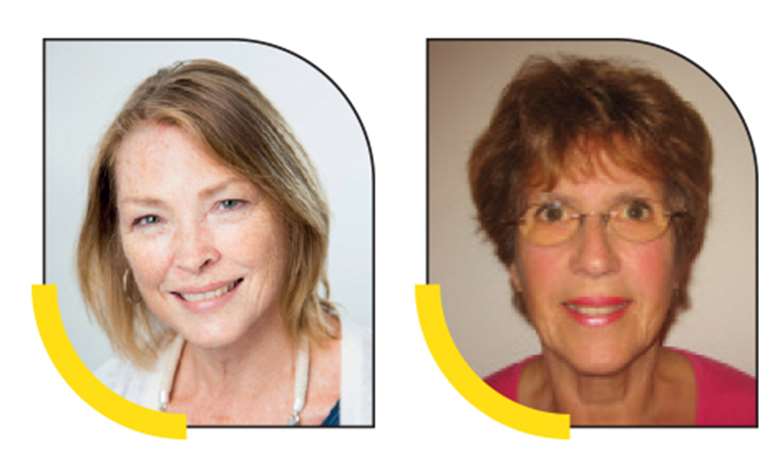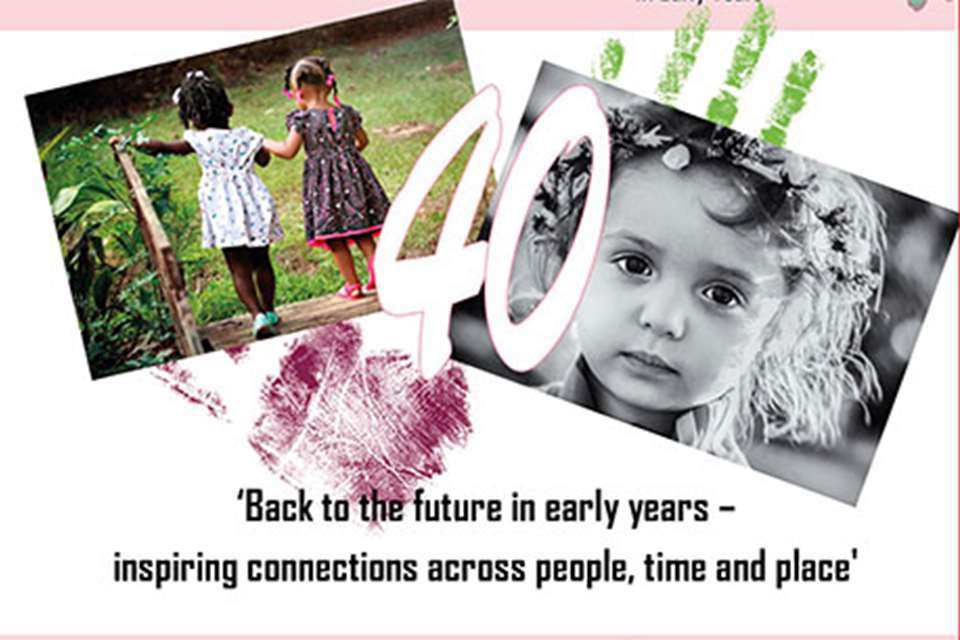Are we nearly there yet?
Nancy Stewart and Dr Janet Moyles, members of the TACTYC executive committee
Monday, September 3, 2018
Nancy Stewart and Janet Moyles give a perspective from 40 years of TACTYC: Association for Professional Development in Early Years

Though we seem to experience almost constant change in policy for early years, it is often said that the nature of young children doesn’t change. Their inborn developmental patterns and their needs for warm, caring relationships and rich experiences to inspire and stimulate them are part of being human from one generation to the next. Perhaps this is why so many of the same debates around policy and practice in the early years resurface again and again.
What is the best we can do for our youngest children? Why does it matter? How do we know if the lives of children and their future opportunities are improving through our efforts?
A good start
Forty years ago a small group, united by the belief that well-informed and reflective professionals can best support children’s early development and learning, formed a pressure group to champion excellent professional development for early childhood professionals. Now known as TACTYC (from the original name Tutors of Advanced Courses for Teachers of Young Children), the organisation has seen changes both for better and for worse, and many recurring issues.
One mark of progress is that today high priority is given to early years education, with political parties all agreeing that children’s earliest years are of enormous importance. As a result we have seen significant investment aimed at providing a good start for children and their families. But how should the investment be aimed? Far from having reached a consensus, how best to support young children is an increasingly contested space.
There is currently much disquiet in the early years sector about ever-mounting pressures toward a more formal approach as the preferred method of teaching and assessing young children. When TACTYC began, ‘early years’ was defined as age three to nine. We now have the welcome inclusion of the critical period from birth in the early years remit. But far from understanding the unique development of children beyond five in the current EYFS, there is continuing downward pressure to expect Reception children – many still age four when they are assessed at the end of the EYFS – to attain skills in literacy and maths that were previously thought appropriate for children at six or seven. Internationally, England is an outlier in this regard, with most countries having later school starting ages and later introduction to more formal learning.
Challenging policy
The imposition of Baseline testing and the phonics check are designed to provide data the Government requires, but rather than relying on assessment through professional knowledge of children, these unreliable and inappropriate tests have a knock-on effect on the curriculum and practice. The result is that play – long a foundation of early years practice – is today increasingly squeezed out, subsumed in the drive to formalise and the pressure for high attainment in narrow curricular areas. This can only be bad for children since play is the strongest medium for children to find out about themselves, the world and other people and to develop strong dispositions and aptitudes for learning.
The issues TACTYC was concerned about 40 years ago are in many cases little different from our concerns today: the range of courses and their relative values and merit; the culture of childhood and how it is perceived; child development; work and play; practical teaching placements; the ‘pre-school’ curriculum; difference in family structures; changing roles of women within society; the structure of B.Ed. courses and the role of the professional; multi-professional working; and the relevant professional experience of ‘tutors’. At that time, however, decisions about curriculum content and approach were left mainly to the practitioners, and the EYFS and the Profile were well into the future.
Committed to the belief that knowledge is power, TACTYC maintains its role in challenging policy development by calling for evidence-driven decision-making. We respond to government consultations with referenced argument, and contribute to public debate and the evidence base through commissioning original research and publishing occasional papers. Through our international peer-reviewed journal Early Years, our website (www.tactyc.org.uk), conferences and public campaigns, we aim to support professional growth by providing practitioners with the most current information on which to build their own reflections and practices.
Today’s sector
The early years sector today includes a very varied workforce operating in a huge range of settings and with many diverse qualifications. TACTYC aims to bring together all those with a shared vision for young children and shared understanding of the importance of quality professional training and ongoing development.
Our current chair, Professor Sacha Powell, wrote recently, ‘TACTYC retains a principled voice and a fidelity to its original aims and purpose.’
TACTYC’s strength of conviction and assertive voice grow from continuing passionate belief in the importance of the work we do on behalf of practitioners and children.
Our 40th Anniversary Conference on 2-3 November will support all practitioners in challenging inappropriate practices and affirming the basic right of young children to care and education of the highest quality. For more information, go to https://tactyc.org.uk/conferences





